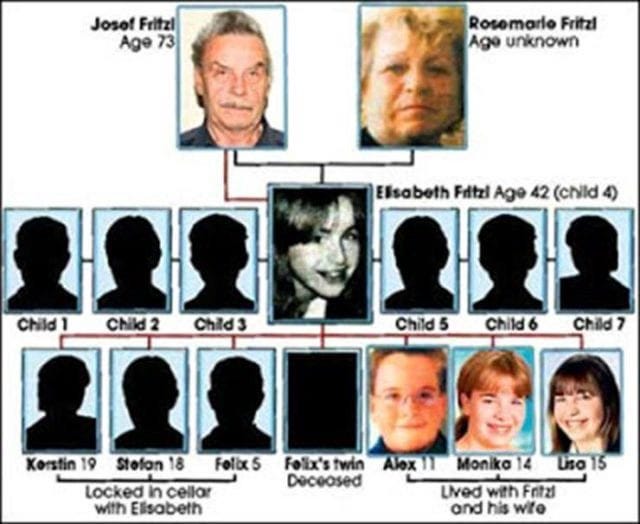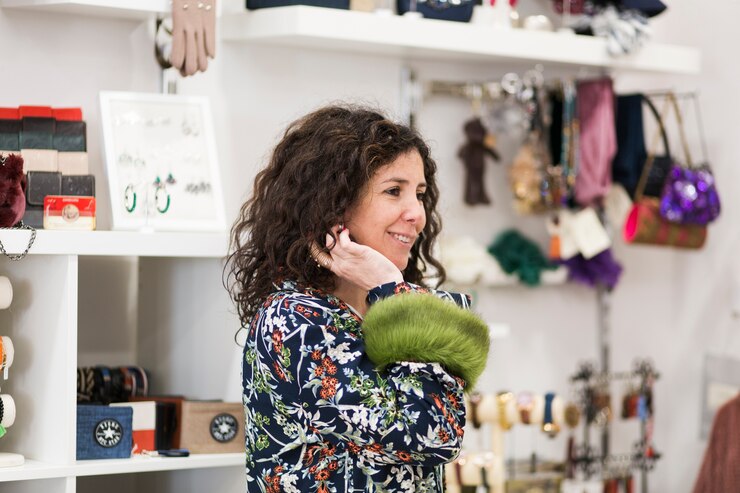| Person | Details |
|---|---|
| Name | Alexander Fritzl |
| Born | May 28, 1996 |
| Gender | Male |
| Age | 27 years old |
| Material Status | Not married |
| Spouse | N/A |
| Known For | Being one of the children born to Elisabeth Fritzl during her captivity |
| Description | Alexander Fritzl is the son of Elisabeth Fritzl, who was held captive by her father, Josef Fritzl. Alexander was raised by his grandparents, unaware of his true parentage, until the truth was discovered in 2008. He is remembered as a kind boy, serving as an altar boy and playing the trumpet. |
Alexander Fritzl’s story is one of both darkness and resilience, marked by the trauma of his beginnings and the promise of newfound freedom. Born to Elisabeth Fritzl, who endured unimaginable abuse and captivity at the hands of her own father, Josef Fritzl, Alexander’s early life was cast in shadows. Despite these grim circumstances, his journey also tells a tale of courage and adaptability. We explore Alexander’s life, from his unexpected birth in captivity to the eventual revelation of his and his family’s plight.
Early Life and Birth: Born into Darkness
Alexander was born on April 28, 1996, as one of the twin sons of Elisabeth Fritzl. Sadly, his twin brother, Michael, succumbed to the lack of medical care, a decision made by their grandfather, Josef Fritzl. Alexander’s entry into the world was not celebrated with joy but surrounded by secrecy and trepidation.
Elisabeth, a victim of a horrific 24-year captivity, parented Alexander in the confined space of a cellar, where she had been imprisoned by Josef. Despite the grimness of his birth circumstances, Alexander’s survival is seen as a beacon of hope amidst relentless suffering. Learn more about Alexander here.
Separation from Mother: A Child Removed
At 15 months old, Alexander’s life took another turn when he was carried upstairs from the cellar and into the Fritzl family home. Josef Fritzl’s calculated deceit involved constructing a false narrative of Elisabeth joining a cult, thus “abandoning” Alexander and his siblings. This ruse allowed Josef and his wife, Rosemarie, to raise these children as their own. Alexander lived under this deception, unaware of his true origins or his mother’s proximity, which was just beneath his feet all those years.
Family Dynamics: Living Under Deception
In the Fritzl household, Alexander was nurtured alongside his two “sisters,” Lisa and Monika, who shared the same escape from the depths of the cellar. Their lives were enveloped in a lie orchestrated by Josef, shaping their family dynamics under a facade. Alexander, with a naturally kind spirit, developed strong bonds with his supposed grandmother, Rosemarie, who was, in fact, his grandmother-in-law. The love he received, although based on deceit, laid a foundation that would later support him during his painful but liberating transition into the truth.
Through this journey, Alexander stands as a testament to the power of resilience in the face of overwhelming adversity. The unraveling of his family’s brutal past forged a path toward healing and reconnection. Discover more about Josef Fritzl’s impact on the family here.
Life with Grandparents: An Unusual Upbringing
Imagine growing up in a household where your grandparents are your caretakers, yet there’s a hidden family secret. This was Alexander Fritzl’s reality. Raised by Josef Fritzl and his wife, Rosemarie, Alexander knew his grandmother as “Mami,” developing a close relationship with her. Along with his sisters, Lisa and Monika, who were also moved upstairs, Alexander lived a life woven with lies. Josef managed to convince everyone that these children were foundlings supposedly abandoned by Elisabeth, who he falsely claimed had joined a cult. This created a facade of normalcy that sheltered Alexander and his sisters from the grim truth that lingered beneath.
Despite this deception, Alexander thrived in the environment he knew. He was a kind and helpful boy, always ready to lend a hand. Known for running errands for “Mami,” he also served as an altar boy in his local church. Alexander’s upbringing, while under misleading circumstances, fostered a gentle and caring nature in him. The warmth of Rosemarie’s care might have been genuine for him, even amidst the circumstances orchestrated by Josef.
Personality and Hobbies: Alexander’s Pursuits
Alexander’s life wasn’t just defined by the unusual setup of his upbringing. He had a personality full of enthusiasm and zest. Music was a significant part of his life, with the trumpet being his instrument of choice. His interest in playing the trumpet highlighted his pursuit of joy beyond the confines of his complex family dynamics. Alongside his musical pursuits, Alexander was known for being someone who brought positivity into his environment. His kindness and willingness to help, be it at home or as an altar boy, were noteworthy traits that defined him.
Being actively involved in these activities likely provided Alexander with a sense of normalcy and routine. Despite the secrets of his lineage, his engagements in hobbies and social activities played a crucial role in shaping his well-rounded personality. This balance of activities allowed him to have a slice of regular life in an otherwise unusual upbringing.
Learning the Truth: Discovery of Identity
In 2008, when Alexander was 12, the truth of Josef Fritzl’s crimes came crashing down like a tidal wave, altering Alexander’s life forever. The moment Kerstin, Elisabeth’s eldest daughter, was hospitalized, a series of events unfolded, bringing Elisabeth’s long-hidden captivity to light. For Alexander, this meant a shocking revelation about his true parentage and the existence of siblings he hadn’t known, like Stefan and Felix, who had endured a lifetime of imprisonment with his mother.
It was a tumultuous time for Alexander as he grappled with the reality of his origins. The narratives he grew up with were shattered, revealing a past filled with dark and disturbing truths. This discovery became a pivotal point in his life, marking the start of a new chapter where he had to adjust to this unveiled identity. As he reconnected with his biological family, Alexander’s life took a dramatic turn, stepping out from the shadows cast by years of deceit. You can find more about such significant events in articles on our website.
Adjustment to New Realities: Reuniting with Family
Alexander Fritzl’s life turned upside down when he learned about his true origins at 12. Imagine discovering that your mother, whom you thought abandoned you, was actually imprisoned beneath the same roof. This shocking revelation meant Alexander had to adjust rapidly to a family he never knew existed. He met his biological mother, Elisabeth, and brothers Stefan and Felix for the first time as they were liberated from captivity. Adjusting to this new reality was challenging for young Alexander, but it also offered a profound opportunity for healing and connection.
When reuniting with his biological family, Alexander faced the daunting task of reconciling the affection he had for his grandparents with the harrowing truth about his grandfather, Josef Fritzl. Learning that his kind grandmother was also kept in the dark must have been both confusing and enlightening. As he adjusted, Alexander began building new relationships with his newfound family members. This process involved learning, understanding, and embracing the unique experiences they all endured separately. It was a time of both emotional upheaval and newfound bonding, setting the stage for a future where they could explore their identities together.
Public Profile and Perception: Beyond the Captivity Story
Despite the profoundly traumatic circumstances of his early life, Alexander Fritzl has been widely recognized for his positive attitude and kind nature. Many remember him as an altar boy who ran errands and played the trumpet for his grandmother, displaying a warmth that isn’t overshadowed by his tragic beginnings. Moving beyond the infamous story of captivity, Alexander represents resilience and the capacity for a positive outlook, despite facing unimaginable adversities.
The public’s perception of Alexander underscores a significant aspect of his unfolding story: his strength and kindness shine through. While his past might seem all-consuming, Alexander’s life is more than the story of what happened in the cellar. His transition into a new life has been a testament to his ability to adapt to transformative changes and maintain a hopeful approach to life. This shows us that, despite the circumstances of our birth or upbringing, it is possible to chart a course defined by compassion, understanding, and joy for the future.
Conclusion: Alexander’s Journey of Resilience and Hope
Alexander Fritzl’s journey from the shadows of his family’s darkest secrets to embracing a new identity speaks volumes about human resilience. His experiences remind us that even in the direst situations, hope can carve out a space for healing and growth. By reuniting with his biological family, Alexander opened a new chapter filled with potential for love and understanding.
In overcoming immense challenges, Alexander embodies a narrative that emphasizes strength, even when the odds are stacked against you. His story inspires us to find light in moments of despair, offering a profound message about the enduring spirit of survival. As Alexander continues his life journey, his story serves as a beacon of hope to people worldwide who strive to overcome their own hardships. Through his experiences, we are reminded of the power of family, identity, and the ability to redefine one’s future, regardless of a tumultuous past.






